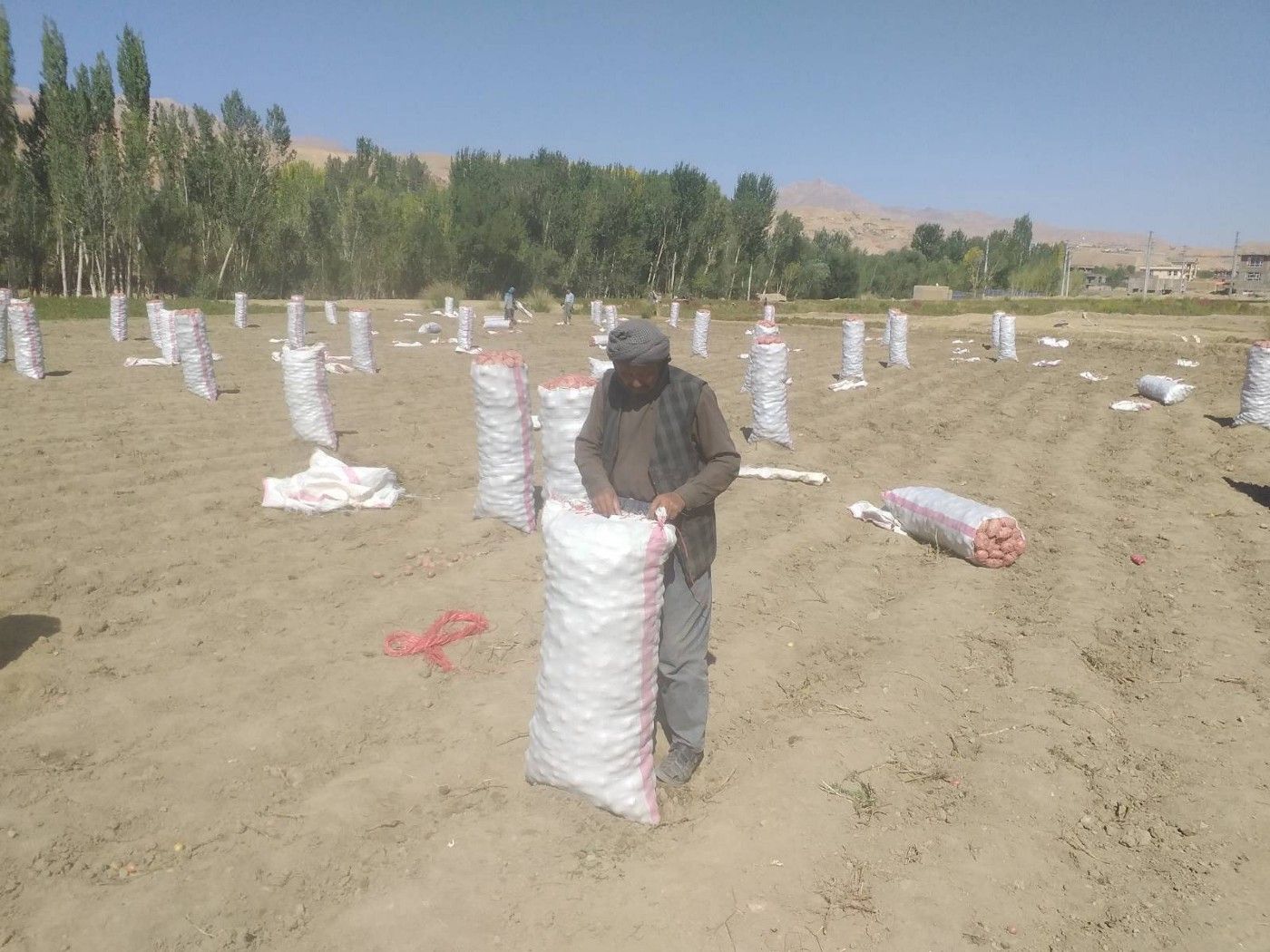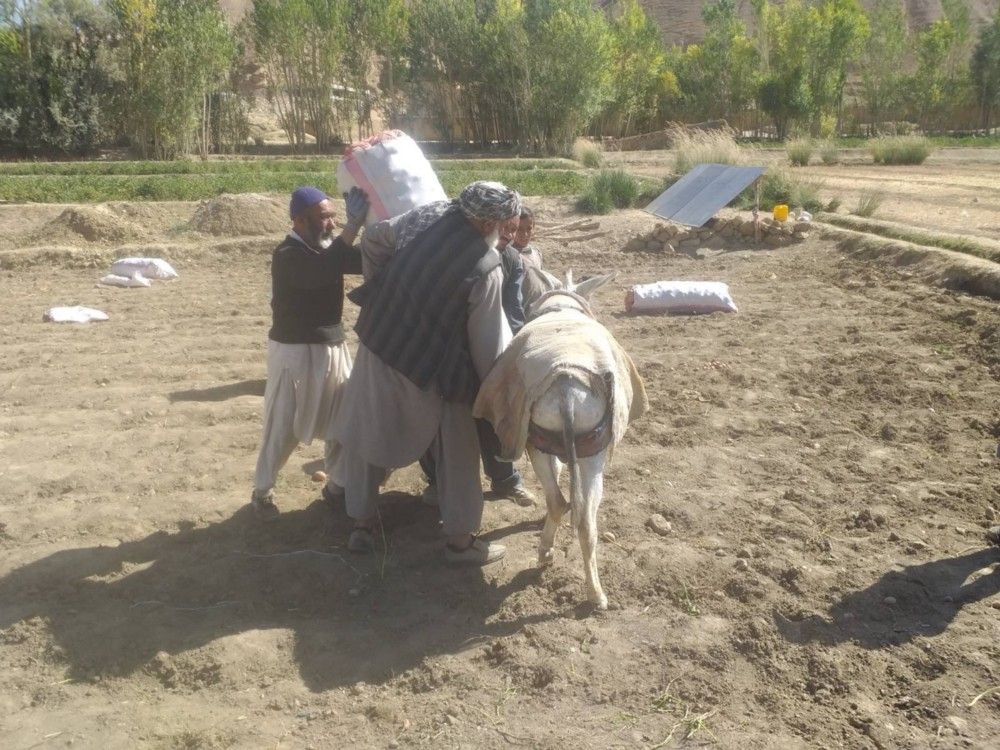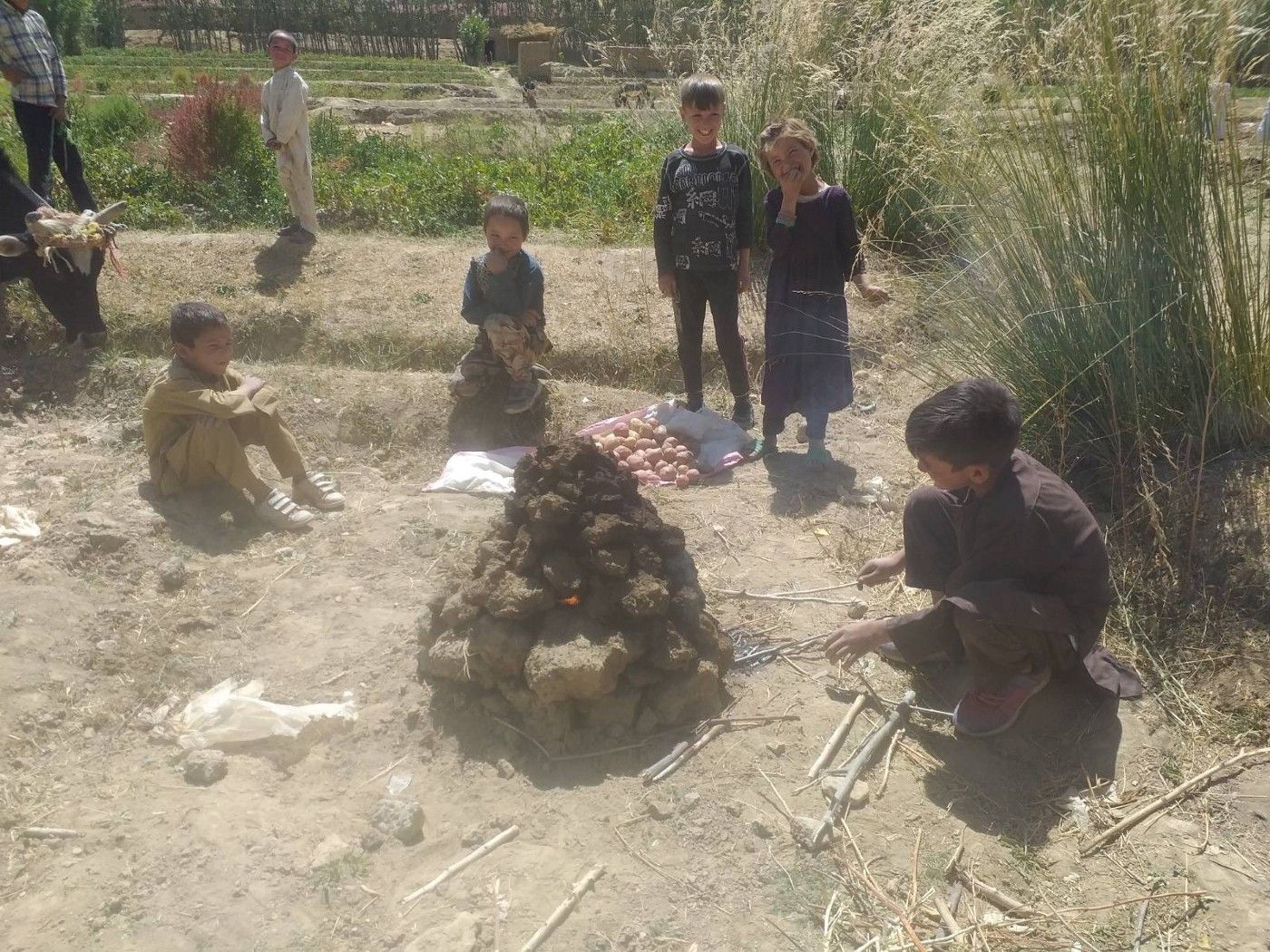In Afghanistan, Potatoes Pass as Currency

— One Day in Afghanistan —
Reporting by Alidad Roshan, edited by Mohammad Jawad and Brian Conley
Dahan-e Azhdaha — Bamiyan, a province in the highlands of central Afghanistan, has been one of the most secure provinces in the country. Yet the isolation that helped it remain secure has become one of its primary challenges, as droughts increase, money grows short, trade is decreasing and Afghans everywhere are growing desperate.
Despite the current challenges, 62 year-old Eid Mohammad has been a farmer all his life, and is committed to continuing. Bamiyan is known for its potatoes and their quality throughout Afghanistan, if not the countries they are exported to.
It’s now fall and time to harvest the potatoes that Eid Mohammad has cultivated in Bamiyan, a province in Central Afghanistan. He is married, has eight kids including five sons and three daughters, three daughter-in-laws, and five grandkids, 3 boys and 2 girls. Large families are common across Afghanistan and it is typical for multiple generations to live in one home. These large families are now causing many Afghan families to struggle as money becomes tight and unemployment increases, those who have work are forced to do more.
Today two of Eid’s sons are helping him on the farm alongside a number of hired laborers. Eid and his helpers divide the potatoes into three piles, large, medium and small.
“I don’t have money to give them so I pay them in potatoes,” Eid Mohammad says. Eid pays the laborers with the crop he has cultivated instead of cash because the goods he sells do not generate enough revenue to pay them in Afghanis.

Eid sells the larger sized potatoes to merchants for around a dollar per fifteen pounds or seven kilos of potatoes. The businessmen then take it to market in other cities or for export. He sells the medium-sized ones on the field to locals and takes the small ones home for his family. In addition to potatoes, Eid grows onions, carrots and scallions, some of the scallions are used as a fresh side veggie for meals during his work days.
“We will eat the scallions with bread for lunch and you can see how they taste,” Eid says.
It’s around 10 am now and Eid is cutting potato leaves to feed to his livestock. “We dry most of it and feed it to my livestock throughout the year but some are given to them fresh as well.”
Farmers in Afghanistan, like Eid, typically keep an array of livestock including sheep, cows, and goats. The animals are used for their milk as well as meat.
He continues to cut the leaves while complaining that some of his yield is stolen if he doesn’t pay attention or during the evenings when no one is watching the farm. Because of this, he sleeps in his small shed at the farm in the evenings during harvest season.
Farming and agriculture has long been the main source of income for most of rural Afghanistan. In recent years agriculture has been plagued by drought and constant conflict. Farmers have been known to leave their crops in the middle of harvest to flee fighting in their area.
Nestled in the Hindu Kush mountain range, Bamiyan’s residents are predominantly Shiite Hazara with a population of over 462,000 as of 2019. The province was home to the largest standing Buddhas in the world before the Taliban blew them up in March of 2001. Bamiyan’s main source of income is through agriculture and animal husbandry.
It’s now past 11 am and Eid Mohammad is tired, he takes us to a makeshift shed he built from mud bricks and prepares tea. Drinking hot tea is a custom in Afghanistan and throughout Asia, but Afghans drink tea no matter the weather. Hot or cold, there must be tea.
Dusting off the potatoes and putting them away for bagging, Eid says “I don’t think I will have enough money from the sale to cover the price of the seed I will need for next year.”

According to Eid, his potatoes and those from Bamiyan are exported to Central Asian countries as well as Pakistan and Iran. Once the harvest is done, the fields are plowed to prepare them for next year’s crop.
Eid Mohammad has dug a deep well in the corner of one of his fields to irrigate his farm, the pump is powered by batteries, which are charged by solar panels he has set up on his farm. But battery life is not great as the batteries are old and cannot keep a long charge so he has to do most of his irrigation when it’s sunny.
Asked why he chooses to grow potatoes, he says potato yield is much higher in quantity than any other crop but it also takes a lot of work and fertilizers.
Eid says his crops are not enough for his large family of seventeen so they have to buy some items off the market. When they are not busy with the farm, they work as daily laborers and one of his sons has a three-wheeled motorbike he uses to transport goods for other people around the city.
Eid goes back to the fields where he continues cutting leaves from the potato plants. Eid is very strong and works very fast, “This is how you do it, see,” he says while using a scythe to cut the roots off the leaves, before bunching them up and throwing them into a pile.

Another older man challenges Eid Mohammad to a race to see how quickly they can cut the leaves, But Eid looks at his friend and works faster saying, “You have grown old and cannot race me anymore.”
By the time the clock passes 4pm, Eid Mohammad has worked enough for the day. He pays his workers in potatoes but he cannot go home. Eid must sleep at the farm to protect his yield and deter thieves from taking the solar panels he depends on to pump water to the fields.
